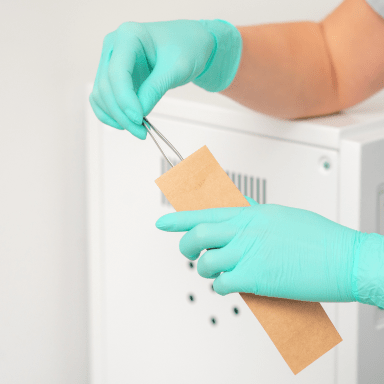Blood Pressure Checks: Why Regular Monitoring Matters
Regular blood pressure monitoring is essential not only for maintaining overall health but also for preventing potentially serious cardiovascular conditions before they escalate. Frequent checks provide valuable insights into your health, whether you are a busy traveller managing a hectic schedule or a dedicated healthcare professional advising others. At Mona Pharmacy, we understand the significance of proactive health management, ensuring that our services are accessible, professional, and tailored to your individual needs. This FAQ article addresses common questions and concerns about blood pressure checks, highlighting their importance, practical considerations, and how they can be seamlessly integrated into your routine.
What is blood pressure and why is it important to monitor?
Blood pressure is the force exerted by circulating blood against the walls of your arteries as your heart pumps it around your body. It is measured using two numbers: systolic pressure (the peak pressure during a heartbeat) and diastolic pressure (the pressure between beats). Monitoring blood pressure is crucial because it helps identify early signs of hypertension (high blood pressure) or hypotension (low blood pressure), both of which can lead to severe health complications, including heart disease and stroke. For travellers and healthcare professionals alike, understanding these metrics can guide lifestyle changes and medical decisions, ensuring timely interventions when necessary.
How often should one get their blood pressure checked?
The frequency of blood pressure checks can depend on various factors such as age, lifestyle, family history, and current health status. Generally, it is recommended that adults have their blood pressure checked at least once every two years. However, individuals with higher risks—like those with a family history of hypertension, existing cardiovascular conditions, or those who travel frequently and may experience stress or environmental changes—should consider more frequent monitoring. Regular monitoring even when feeling well, especially for those balancing a busy travel schedule, can prevent potential health issues from escalating.
What factors can affect blood pressure readings?
Many factors can influence blood pressure readings, including physical activity, stress, caffeine intake, certain medications, and even the time of day. In a travel environment, additional variables such as jet lag, different climates, and changes in diet can also have an impact. Awareness of these influences helps in obtaining more accurate readings by ensuring that measurements are taken under consistent conditions. Healthcare professionals recommend sitting quietly for several minutes before a reading to avoid any temporary spikes or dips caused by recent activities or emotional stress.
What are the benefits of regular blood pressure monitoring?
There are numerous benefits to keeping a regular check on blood pressure levels. Firstly, it allows for the early detection of high or low blood pressure, which could otherwise remain unnoticed until more serious symptoms develop. Secondly, it assists in evaluating the effectiveness of any treatment plans or lifestyle interventions you might be following. For travellers, regular monitoring can help adjust to new environments and manage stress effectively, ensuring that any anomalies are promptly addressed. Furthermore, continuous monitoring contributes to better communication with healthcare providers, enabling them to offer more precise and personalised advice.
How can travellers manage blood pressure checks while on the move?
Travellers often face challenges in maintaining regular health routines due to changing environments, time zones, and dietary variations. However, today’s portable and user-friendly devices make it easier than ever to monitor your blood pressure even when away from home. It is advisable to pack a reliable digital blood pressure monitor that can provide accurate readings quickly. Additionally, adopting healthy travel habits—such as staying hydrated, maintaining a balanced diet, and ensuring adequate rest—can help stabilise your blood pressure levels. Remember, even on the go, your health remains a priority, and staying vigilant about how you feel can preempt more significant health issues.
What steps can be taken to manage and improve blood pressure?
Once you are aware of your blood pressure levels, whether they fall within a normal range or require attention, several proactive measures can help maintain or improve them. A balanced diet, rich in fruits, vegetables, lean proteins, and low in saturated fats and salt, contributes significantly to cardiovascular health. Regular physical activity, stress management techniques such as mindfulness or meditation, and quitting smoking if applicable, play important roles as well. For travellers, planning for regular physical activity and making informed dietary choices while exploring new cuisines can make a big difference. Additionally, consulting with a healthcare professional helps tailor these recommendations to your specific circumstances, ensuring an appropriate and effective approach.
How do healthcare professionals use blood pressure data in clinical decision-making?
For healthcare professionals, accurate blood pressure readings are a vital tool in the diagnosis and management of various medical conditions. The data collected through regular monitoring facilitates informed decisions regarding medication adjustments, lifestyle alteration recommendations, and the need for further diagnostic testing. In the context of dynamic travel schedules, where patients may experience additional stress or environmental influences, consistent recordings offer insight into trends over time. This systematic approach ensures that treatment plans are not only reactive but also preventative, ultimately supporting a more holistic approach to patient care.
What should I do if my blood pressure readings are abnormal?
If your blood pressure readings indicate values that are either too high or too low, it is important not to panic but to take prompt action. Abnormal readings could be transient, perhaps due to a temporary stress factor, but they may also signal an underlying health issue that requires professional attention. It is advisable to re-measure after a few minutes of rest; if abnormal values persist, booking an appointment with a healthcare provider is the next step. At Mona Pharmacy, our experienced team is available to discuss your readings in detail and provide guidance on whether further diagnostic tests or treatment adjustments are necessary. You can easily book an appointment with us to address any concerns you may have.
How can I ensure accurate blood pressure readings?
Ensuring the accuracy of your blood pressure readings is paramount. It is recommended that you sit in a quiet space, avoid caffeine or strenuous activity at least 30 minutes before measuring, and follow the instructions provided with your blood pressure monitor. Consistency in the time of day and the conditions under which you measure can also lead to more reliable data. For travellers using portable monitors, it is beneficial to familiarise yourself with the device before embarking on your journey, ensuring that you are equipped to manage your health independently and effectively.
Regular blood pressure monitoring is a straightforward yet powerful tool in maintaining your well-being. Whether you are exploring new destinations or working in a clinical environment, the ability to stay informed about your cardiovascular status empowers you to take proactive measures. Engaging in regular checks, understanding the factors that influence your readings, and seeking professional guidance when necessary are all part of a comprehensive approach to health management.
At Mona Pharmacy, we are committed to supporting your health journey. Our private services are designed to seamlessly integrate into your busy lifestyle, providing you with reliable and convenient solutions for monitoring your blood pressure. If you have concerns about your blood pressure or if you require expert advice tailored to your unique circumstances, we encourage you to book an appointment with us today. Your long-term health is our priority, and together we can take meaningful steps towards a healthier future.






